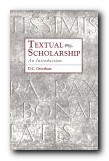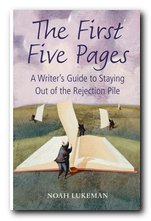free pages from our English Language software program
Synonyms – definition
![]() In a very general sense, synonyms are different words which have the same meaning.
In a very general sense, synonyms are different words which have the same meaning.
Examples
Word Synonym kingly royal pavement sidewalk youth youngster strong powerful
Use
![]() Strictly speaking, such words are rarely [if ever] quite identical to each other.
Strictly speaking, such words are rarely [if ever] quite identical to each other.
![]() There are bound to be semantic, stylistic, regional, or other differences between them.
There are bound to be semantic, stylistic, regional, or other differences between them.
![]() It is often said that if two words do have exactly the same meaning, one of them is likely to disappear.
It is often said that if two words do have exactly the same meaning, one of them is likely to disappear.
![]() Moreover, two words might be synonymous in one statement, and different in another.
Moreover, two words might be synonymous in one statement, and different in another.
![]() NB! Synonyms offer us variety in our expression.
NB! Synonyms offer us variety in our expression.
![]() Synonyms are usually referred to by linguists as ‘near synonyms’, because they argue that no two words mean exactly the same. If they did, one would probably disappear from use.
Synonyms are usually referred to by linguists as ‘near synonyms’, because they argue that no two words mean exactly the same. If they did, one would probably disappear from use.
![]() English is a language which has ‘borrowed’ from many varied sources during the course of its history. This has created a wide and heterogeneous lexicon. For example, terms which were originally French currently coexist with their Anglo-saxon equivalents:
English is a language which has ‘borrowed’ from many varied sources during the course of its history. This has created a wide and heterogeneous lexicon. For example, terms which were originally French currently coexist with their Anglo-saxon equivalents:
French Anglo-Saxon petite small tour trip chauffeur driver aperitif drink promenade front (as in sea-front) escritoire desk
![]() The French term usually carries a prestige value over that of the English equivalent, which is often seen as basic and even crass. This is because of the history of French dominance over the English as a result of the Norman Conquest.
The French term usually carries a prestige value over that of the English equivalent, which is often seen as basic and even crass. This is because of the history of French dominance over the English as a result of the Norman Conquest.
![]() During the period of French rule after 1066, a state of diglossia existed throughout the south of England. Diglossia means that two languages are used by one society, but applied to two discrete functions. French was used for matters of church and state, whereas English was used by the common people for personal and family discourse.
During the period of French rule after 1066, a state of diglossia existed throughout the south of England. Diglossia means that two languages are used by one society, but applied to two discrete functions. French was used for matters of church and state, whereas English was used by the common people for personal and family discourse.
![]() The legacy of this diglossia is that we have a multitude of synonyms or near-synonyms at our disposal.
The legacy of this diglossia is that we have a multitude of synonyms or near-synonyms at our disposal.
![]() However, it is usually preferable to state the same idea in a variety of styles, rather than to repeat one definitive term for one specific phenomenon.
However, it is usually preferable to state the same idea in a variety of styles, rather than to repeat one definitive term for one specific phenomenon.
![]() In Shakespeare’s King Lear, the king confesses to being a ‘foolish fond old man’. The use of two near synonyms has a poetic and dramatic effect, as one adjective has the effect of intensifying the other.
In Shakespeare’s King Lear, the king confesses to being a ‘foolish fond old man’. The use of two near synonyms has a poetic and dramatic effect, as one adjective has the effect of intensifying the other.
Self-assessment quiz follows >>>
© Roy Johnson 2004
English Language 3.0 program
Books on language
More on grammar
 Jaques Barzun, On Writing, Editing and Publishing, Chicago: University of Chicago Press, 1986.
Jaques Barzun, On Writing, Editing and Publishing, Chicago: University of Chicago Press, 1986.

